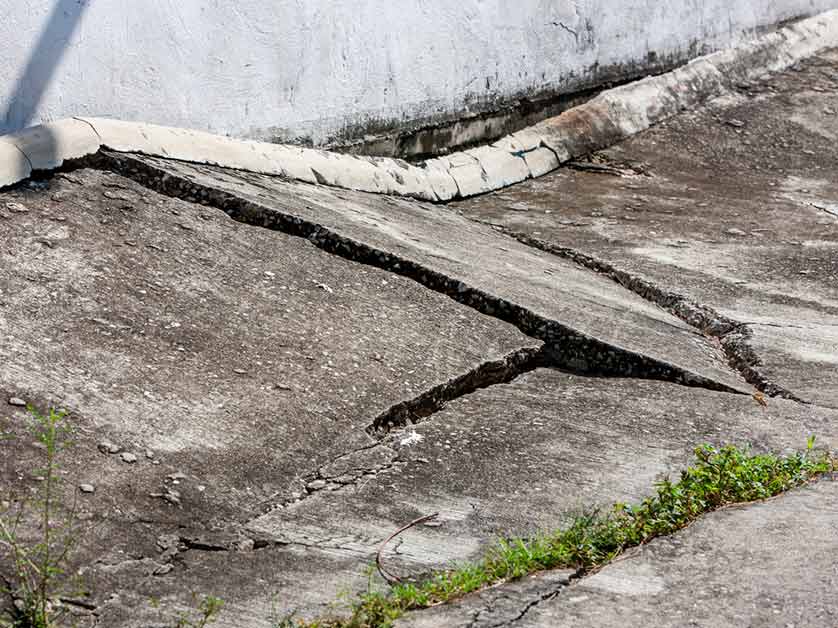
Concrete paving is known for its durability and longevity. However, they’re not impervious to certain environmental conditions, and buckling is a phenomenon that can afflict these structures, especially in the sweltering heat. In this post, Bonness discusses why buckling occurs in concrete pavements and how to address it.
What Causes Pavement Buckling?
Pavement buckling happens when there’s a significant air temperature rise, causing the pavement material to expand beyond its capacity. This expansion can be so severe that it forces sections of the pavement upwards, resulting in a buckle. The phenomenon is particularly prevalent in older concrete pavements, which may not be as resilient as newer constructions. The sun’s intense heat exacerbates this issue as it directly heats the pavement, accelerating the expansion process.
The rigidity of concrete, while beneficial for load-bearing and longevity, becomes its Achilles’ heel when faced with extreme temperature fluctuations. Concrete doesn’t have the flexibility of asphalt, which helps absorb some of this expansion. Due to concrete’s lack of give, it has no choice but to buckle under the pressure.
Aggregate Types and Expansion
The kind of aggregate used in the concrete mix can significantly impact how much a pavement will expand or contract. Materials like granite, limestone, shale or siliceous gravel have different thermal properties. Siliceous aggregates, for instance, have a higher tendency to expand when heated, increasing the likelihood of pavement buckling. The water-cement ratio and the concrete’s age also play crucial roles in this phenomenon.
Concrete Pavement Repairs and Mitigation
In the event of buckling, swift and effective repair strategies are crucial. Full-depth repair is commonly used to address buckling near pavement joints. It involves the removal of damaged concrete and replacement with new material. Utilizing fast-setting concrete is a key strategy in minimizing downtime and reopening roads to traffic quickly.
Asphalt Pavements: An Alternative to Concrete Pavements
Given the climate and environmental conditions in Southwest Florida, asphalt pavement presents numerous advantages over concrete for roadways. The inherent flexibility of asphalt pavement allows it to better accommodate thermal expansion and contraction, reducing the risk of buckling. This characteristic makes asphalt the surface of choice for most community and commercial developments in the region. The material’s adaptability to temperature changes means a longer lifespan and less frequent need for disruptive repairs.
Bonness is equipped to handle concrete pavement repairs, ensuring your infrastructure remains robust and reliable. We can also assist you with your driveway construction needs. Call us at (239) 597-6221 or visit our contact page to schedule a consultation.
